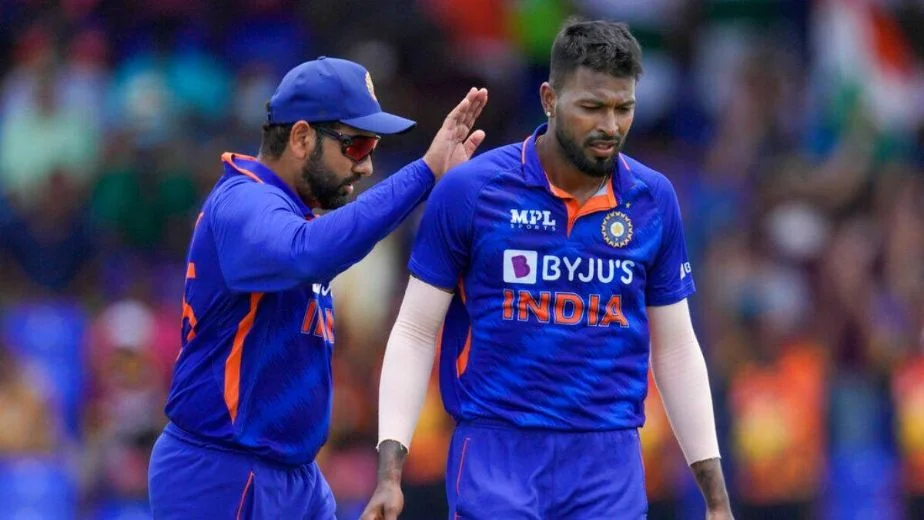(Cricket news) The Indian white ball team is currently in incredible form under the leadership of Rohit Sharma and Rahul Dravid. India has been performing really well, especially in the T20I format and the squad depth is something that is a very big asset. The team has a jam packed schedule, which is why they have constantly rested players and give less established players a chance. Apart from that there has been a lot of experimentation which has been going on regarding combination and personnel.
In India's 2nd T20I against West Indies, Rohit Sharma didn't give an over to Bhuvneshwar Kumar at the death despite him having two overs to spare and instead gave Avesh Khan the responsibility of defending 11 runs of the last over. The seamer couldn't get the job done as West Indies won with 4 balls to spare. Rohit Sharma in the post match presentation said "Avesh Khan has got the skills and talent – it was just one game, unless you give chances, you never know, it's all about backing the players". This clearly suggests that the idea is to groom the players for difficult situations by giving them more responsibility. The team is clearly experimenting a lot with a number of different things.
The biggest experiment has happened in the opening department. For the longest time KL Rahul and Rohit Sharma were the designated openers in T20s but KL Rahul has been suffering with a lot of injuries recently. It looked like Ishan Kishan was the next opener in line but he too has fallen down the pecking order. Rishabh Pant opened in the two T20Is against England and the same was expected against the Windies but instead Suryakumar Yadav was asked to open.
There is a lot of experimentation happening in the opening department for some reason. One of the prominent reasons could be that the management has realised that Rishabh Pant to bat in the middle order because that is where he will bat once KL Rahul is back.
The Indian team has previously been criticised for performing well in bilateral series but then not winning in the big tournaments. At this moment in time India is using the bilateral series as a trial and error process rather than games which they must win. The strategy could backfire because when the tournament does come, it might get into unfamiliar territory for the players. India has an issue that the first choice Indian team that will play in the tournament rarely plays a bilateral match together. If India do well in the T20 World then these experiments will never be questioned but till then there will always be uncertainty around them.
Also read: Indian women defeat Barbados to qualify for the CWG semi finals














